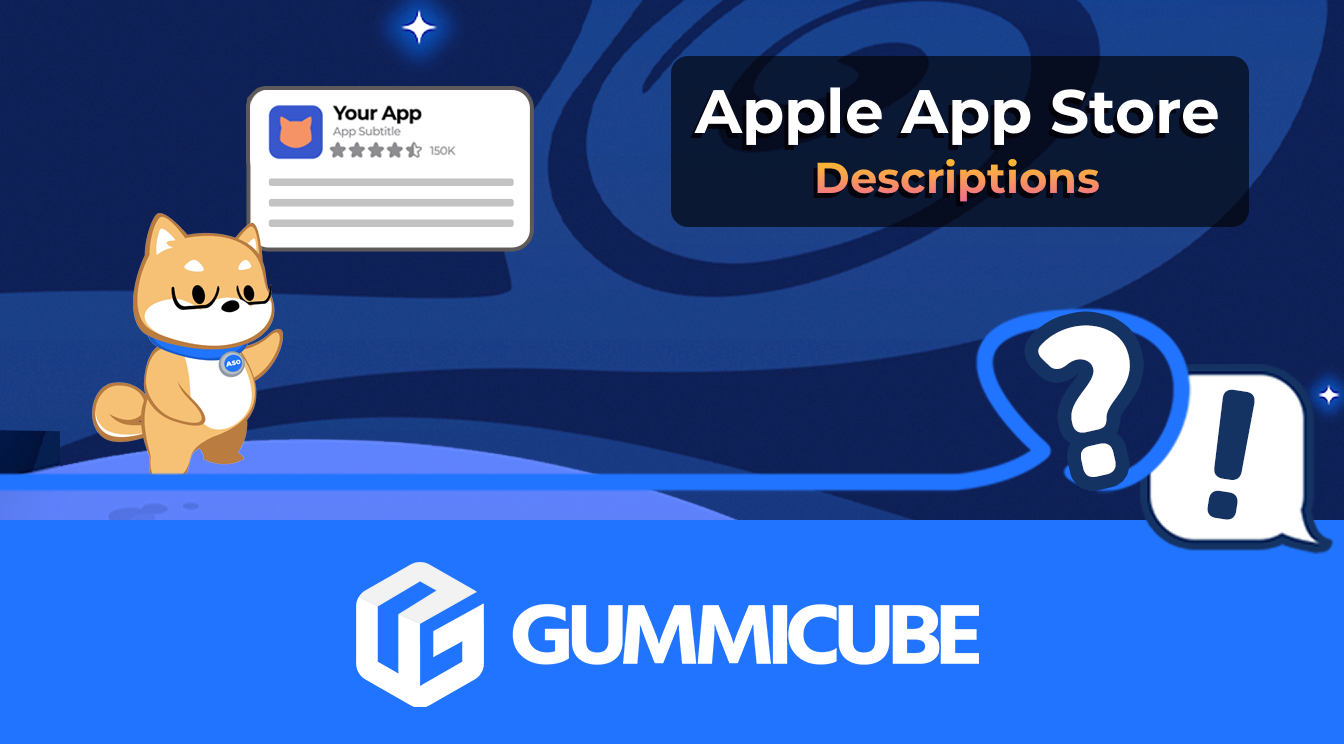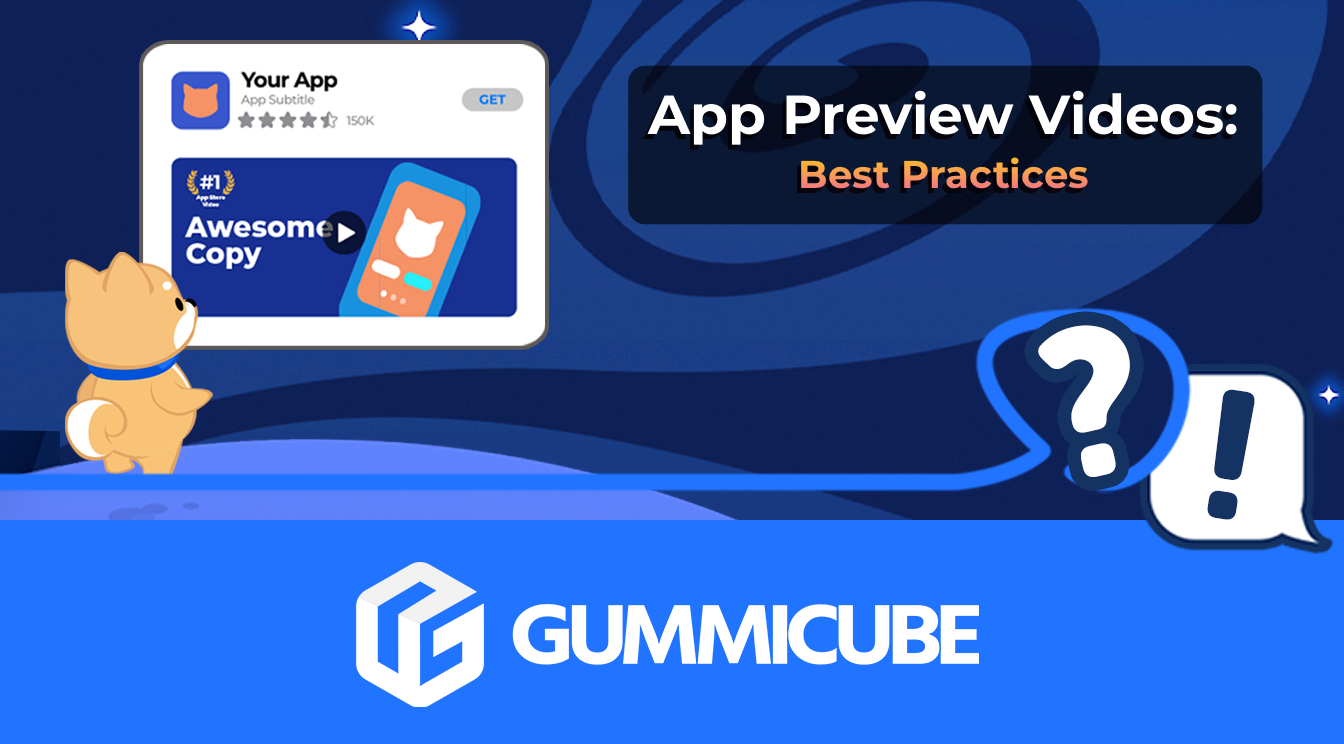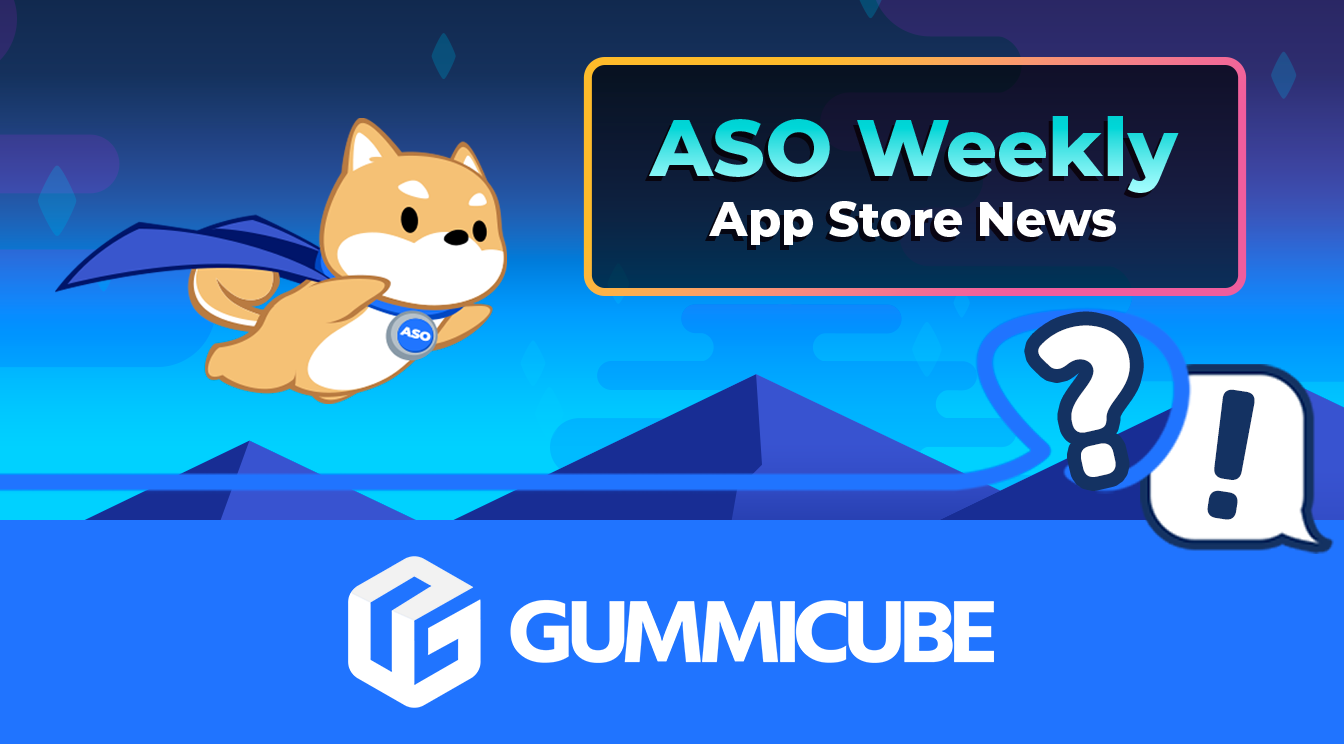
How to Write an Apple App Store Description
Posted on July 17th, 2024
Learn how to approach App Store descriptions the right way so you can effectively engage and convert users.

When you’re choosing your keywords for your app, you want to make sure you’re getting the ones that will help your visibility and downloads. You want users to find your app in searches, which will require targeting keywords that are in-demand and related to your app, then working to increase your rankings for them. As keyword optimization is a central part of App Store Optimization, we’ll review how to optimize your App Store keywords.
On the iOS App Store, developers can declare keywords in three fields: the Title, Subtitle and Keyword bank. Through these three metadata fields, the keywords and phrases you rank for are built out.
The Title and Subtitle provide 30 characters of space each. The keyword bank has 100 characters. Altogether, that’s 160 characters’ worth of keywords; the Title and Subtitle use spaces to separate them, along with any other punctuation marks, while the keyword bank separates keywords with commas and no spaces.
As the title and subtitle are user-facing, they should read properly and provide users with information about the app. All three metadata fields should use as much of the provided space as possible to fully utilize it; empty space is a missed opportunity. For the title and subtitle, a few empty spaces may be necessary for readability, but keyword banks should be at 99-100 characters. This will help you optimize your keyword usage.
It’s important to note that Apple may reject a submission if a reviewer deems the Title or Subtitle to be too “keyword stuffed.” It’s recommended to make sure the Title and Subtitle read naturally and not like a comma separated list- not just for the potential conversion impact, but also compliance.
The first step to any optimization strategy is research. Using App Store Optimization software, you can identify several important things to consider about your keywords:
This can help you identify which keywords you want to keep and which you may want to remove. ASO software can show you how you rank for each keyword, so you can remove the ones that aren’t working well, maintain those that are and identify new trending terms to focus on.
By researching competitors’ rankings for your keywords, you can determine if the keywords are worth pursuing or if you need to adjust your focus. If your competitors significantly outrank you for a relevant keyword, it could mean that you need to change your strategy to increase ranking through where the keyword is used and how you support it with Apple Search Ads. On the other hand, if competitors on a keyword are not relevant to your app, it may be a good candidate for removal.
Keyword search volume is very important for optimization. The higher a keyword’s volume is, the more users are searching for it. Therefore, ranking well for high-volume keywords means an app will appear before more users. On the other hand, some high-volume keywords are so widespread that ranking well for them is a nearly impossible task. At the same time, some keywords with lower volume can still be valuable if they are highly relevant to your app or target a niche interest that your app is built around. ASO software can determine the volume of each keyword you target and highlight what types of apps appear, helping you determine which ones are worth targeting.
When optimizing keywords, consider visible elements and their impact on conversions. User-facing visuals like the video, screenshots and description can impact conversions per keyword search. If they call out your most popular keywords, users can see the app is relevant to their queries and may convert. These conversions can help you rank better for the terms they’re searching for.
Track & Iterate
App Store Optimization requires analysis and reiterations in order to maintain momentum. You should see how you rank for targeted keywords before and after launching changes, Search Ads campaigns and new creative sets. Even if you don’t change anything, user trends can change frequently, so an app’s keyword rankings may begin to fall as users start looking elsewhere.
When changes occur, it’s important to launch new iterations of the app. If you find a keyword is underperforming, it’s time to remove it and test something new. Testing new creative sets can help find what works best for conversions, which can in turn help boost keyword rankings.
Every change can build upon the success of a previous iteration, so use what you’ve learned through research and experience to improve your keyword visibility. Constantly analyzing your rankings and testing changes can help keep your app’s rankings strong with each new version.
With these guidelines in mind, you’ll be able to start optimizing your App Store keywords. When your app features optimized keywords, creatives and descriptions, you’ll be on your way to success.
Want more information regarding App Store Optimization? Contact Gummicube and we’ll help get your strategy started.

Learn how to approach App Store descriptions the right way so you can effectively engage and convert users.

Learn how to grab your audience's attention through effective and engaging app store preview videos.

Welcome to this week’s ASO Weekly - The App Store halts gambling ads amidst outcry and the Apple takes a bite out of NFT app sales.